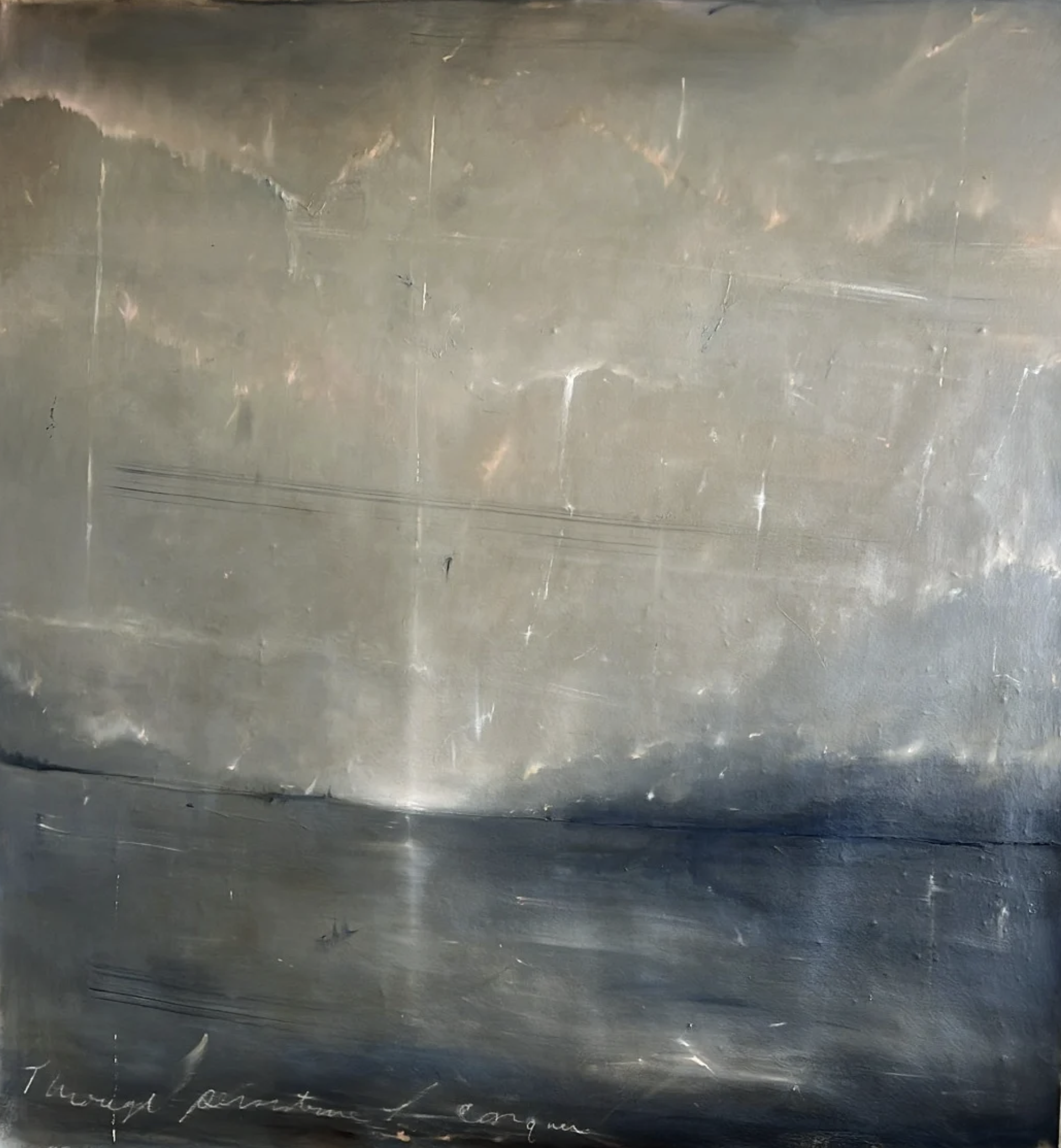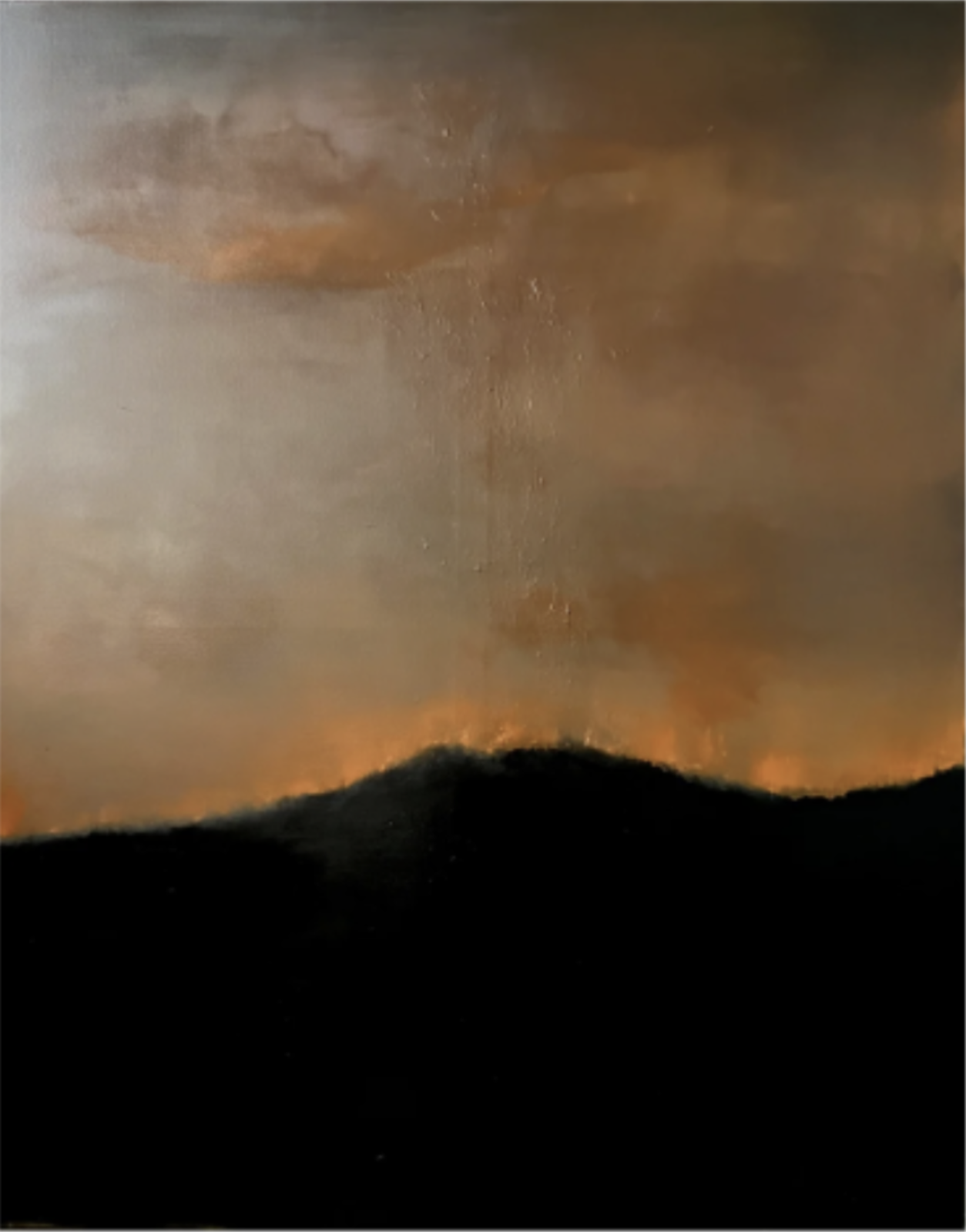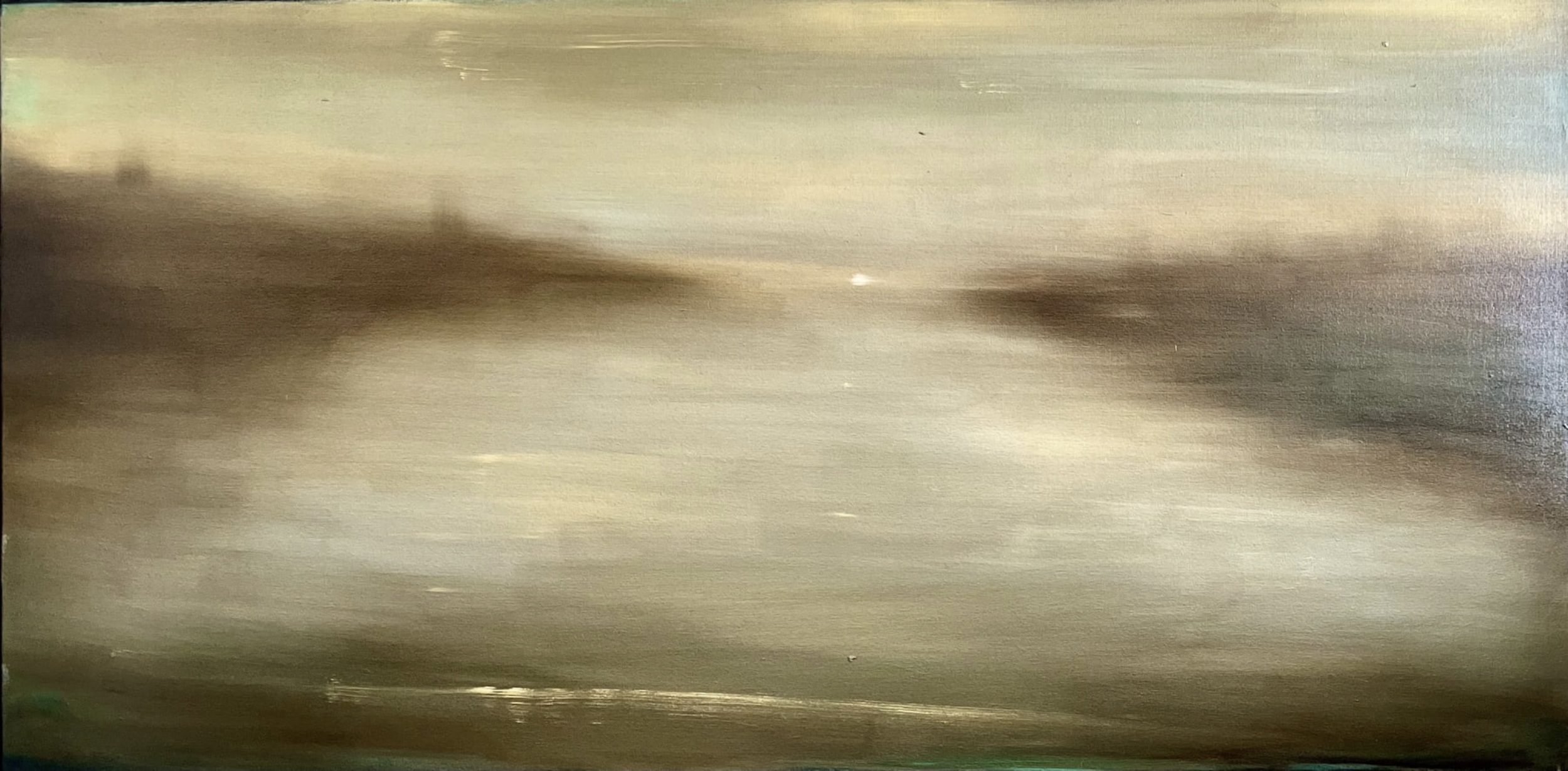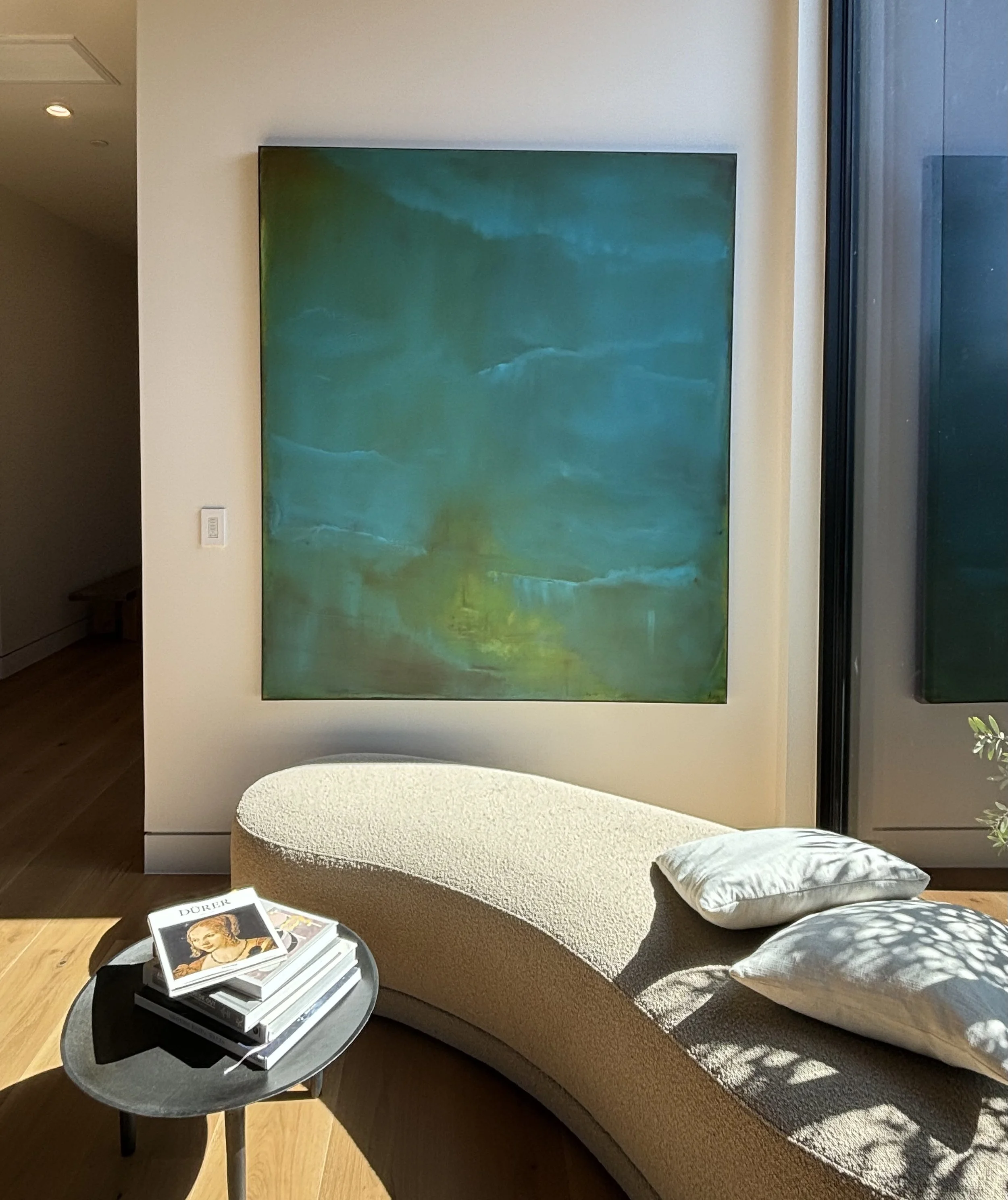Meet the artist: mark Acetelli
Born in the vibrant city of Detroit, Mark Acetelli is a versatile artist whose early passion for art was ignited by his mother's fervor for painting. Growing up in an artistic household, he was immersed in a creative environment that nurtured his innate talents and encouraged him to explore various forms of artistic expression, including music, photography, and painting.
A self-taught artist with an insatiable curiosity and a thirst for knowledge, Mark has cultivated a rich intellectual foundation that informs his unique visual language. His artwork delves deep into the personal introspective journey of life, encompassing the complexities of love, loss, birth, and transformation. Mark describes the context of his work as "Simple expressions of complex thoughts, capturing the physical mixed with the spiritual." He aims to evoke feelings rather than present defined images, allowing viewers to interpret and connect with his work on a deeply personal level.
Mark employs oil paint as an extension of his thought process, utilizing traditional brushes, palette knives, rags, and even his hands to continuously build up and tear down the surface of his canvases. By adding and subtracting layers, he strips away complexities to achieve greater emotional clarity, with each layer contributing to the narrative and depth of his work. A painting must undergo multiple incarnations before it is fully realized.
How did you decide on art as a career?
It chose me, I really didn’t have a choice,. It was a process of elimination, nothing really resonated until I started to paint. I think after I started to sell on a regular basis, the universe was letting me know what I must do. And it was clear from that moment on that I found my purpose and direction.
Can you describe the time when you first realized that creating was something you absolutely had to do?
Ever since I was a small child, I realized I needed to express myself, whether that be creating music, painting a picture, writing a poem, or taking a picture. There was something inside me that had to come out. As I child I was very shy and introverted and it was a more direct way of communicating to outside world.
What jobs have you done other than being an artist?
I was a shipping clerk at a music store, ditch digger, door to door salesman, busboy, worked at Subway, musician, salon assistant, hairstylist/ colorist, etc..
What’s integral to the making of your work or of you being an artist?
Solitude and peace of mind. Without those two factors it’s very hard to get to the source where everything comes from. When the mind is quiet, the waters are calm, there lies the reflection to deeper truths of focused intention.
What role does the artist have in society?
To document lived experiences of the human condition. Through one’s art and self expression. In every past civilization the artists were the ones who told the stories of what was happening during that time. We are the eyes and ears of the moments we live in. We comfort the disturbed and disturb the comfortable.
How would you describe your practice?
I try not to get in the way of my intention, I am open to what unfolds on the canvas. I trust my process and don’t question where it leads me. When I let go, it arrives, when I try to grasp it, it disappears. It’s like Zen, flow like water, reflect like a mirror and respond like an echo.
What does being a creative mean to you?
It’s a way of just being and observing the world through a different lens of perception. Diving in deep and then removing yourself and translating those experiences into art through our own unique voice and perspective. Embracing life and all it’s complexities, from love to loss, from life to death, we are like alchemists who distill life’s beauty and pain into tangible offerings to humanity.
What is your strongest memory of your childhood?
Experiencing first hand the power of art and how it can heal and be a source of inspiration from the depths of despair. My Mom was an artist and after my parents divorce she painted all the time and it was her way of processing and getting through a devastating challenge. That experience taught me to use difficult times as fuel for creativity and that no feeling is final. And if you have an outlet you can create something out of ashes and come through it with deeper understanding of yourself and of human nature.
What kind of patterns,routines or rituals do you have that help aid in your practice?
I get up early, create a list of intentions and things I have to do. Then I take long walk or maybe hike, meditate, yoga, then stop by the art store then off to the studio. That sets up the tone for the day so I can be centered and on purpose.
How would you best describe your practice?
Disciplined, showing up to the studio daily whether you have something to say or not is so important. And also realizing when to take breaks and recharge, stepping away from painting and coming back to it with a different perspective is also very helpful..
What couldn’t you do without?
My family, my wife and daughters are the world to me.
In our last staging project, “The Dragon”, we knew Mark’s pieces would be a perfect fit.





